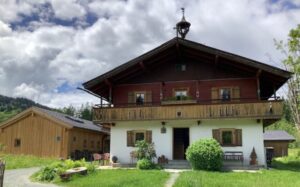WS 3.128
Mountain Biodiversity and Climate Change
Details
Full Title
WS 3.128: Knowledge management for sustainable use of biodiversity: Integrated studies on agrobiodiversity with respect to mountain biodiversityScheduled
Talks & Session:
2025-09-18, 08:30 - 10:00 (LT), MCI – Aula 301Talks & Session:
2025-09-18, 08:30 - 10:00 (LT), MCI – Aula 301Convener
Co-Convener(s)
Cerreta, MariaAssigned to Synthesis Workshop
---Thematic Focus
#IMC25, Biodiversity, Conservation, Hazards, Policy, Socio-Ecology, Sustainable DevelopmentKeywords
Mountain Conservation, Agrobiodiversity, Mountain Community, Knowledge Management, Environmental Impacts on Mountains
Description
More than 80% of its population in India/ Asia lives in villages and about 70% of them depend on the agriculture, forestry, mountain resources. Agriculture and forestry contributes about 40% to the Gross Domestic product. Therefore any significant transformation of the national economy and people cannot be conceived with out the transformation of the agriculture, forestry and mountain sector. It is possible to achieve it through the knowledge management for application of science and technology for improvement of agriculture, forestry, mountain biodiversity conservation. Satpuda is a hilly/mountain region in the Maharashtra state located in central part of India which is now facing the problems of loss of biodiversity in past years either due to over use of natural resources or due to change in the environmental conditions. Therefore it is necessary to review the status of Mountain Biodiversity around the globe in terms of social, economical, policy and technical aspects of biodiversity conservation. This Workshop deals with the role of traditional knowledge management for different aspects of mountain biodiversity conservation such as agricultural and forest, social forestry etc in recent years in different part of the world. It also discusses the causes of the loss of biodiversity in mountain region due to lack of knowledge management, its effect on the socio-economic condition and climate change in the region; the past effort to conserve the biodiversity so as to avoid the environmental impacts. The Workshop session also discusses the role of the local people in conserving mountain biodiversity for their socio-economic development through knowledge management.


